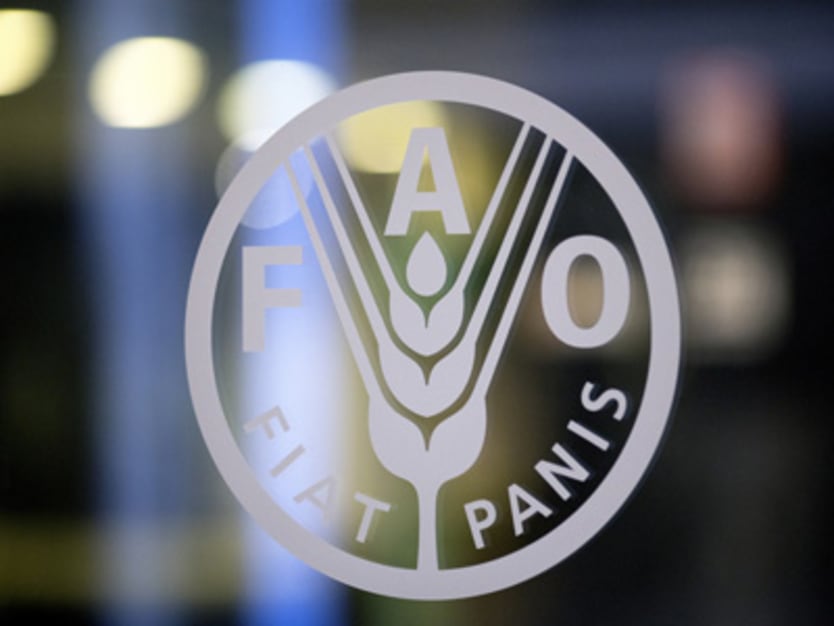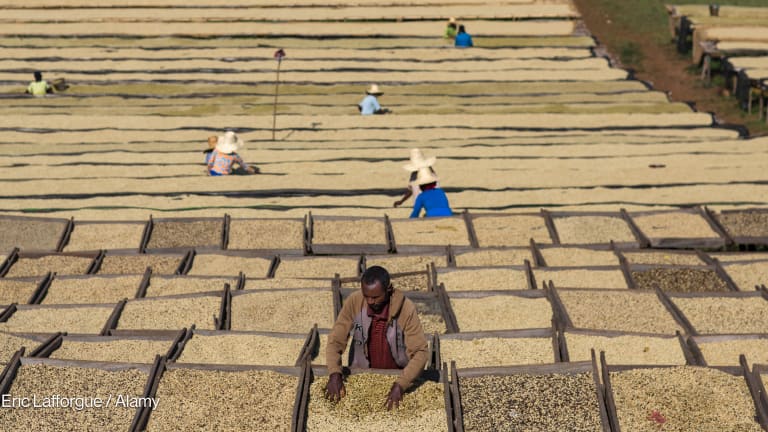
Representatives of the U.N. Food and Agriculture Organization member states gathered in Rome this week to open the debate for the 2014-2015 budget as well as discuss innovative strategies to address food security, with a new role for African countries.
On the table for the debate — to be concluded by June, when the conference of member states will have to approve the budget — are a proposed 1 percent budget increase and reallocations of resources to strengthen technical cooperation and social protection initiatives.
But this is not only a forum but budget negotiations. Also up for discussion are innovative approaches to food security: a reviewed strategic framework, two new plans to engage the private sector and civil society, and a new role for the African countries.
“Based on the reform process, it is a more cohesive and participatory approach,” Ethiopia’s deputy permanent representative to FAO Abreha Aseffa told Devex.
Budget increase opposed by EU
Regarding the budget increase proposal, not all member states were in favor.
Aseffa called the proposed increase “a modest and reasonable request” but cash-strapped European countries represented by the EU criticized the plan.
“We cannot support any budget increase. We are convinced that there is a room to protect FAO program of work without any increase,” the European Union argued.
Brussels also asked for “an efficiency plan to achieve maximum value for money” from FAO’s programs.
Negotiations will presumably be ongoing until June, but diplomats told Devex they are confident on reaching an agreement by then.
FAO Director-General Graziano Da Silva proposed reallocating resources and injecting $10 million into the U.N. agency’s Technical Cooperation Program, including capacity for social protection. The EU is however skeptical of this move and doesn’t support the allocations to social protection at this stage “in absence of a clear articulation of FAO’s added value [in] this area.”
Financing FAO
As for FAO’s financial health, certain member states want to study schemes to improve payments, and European Union countries are concerned about the “deteriorating financial health and increasing deficit of the FAO over [the past] decade.
“This trend must be arrested,” Brussels said in a statement, which also called for the agency’s finances to be reviewed in October.
Other nonbudget topics discussed were:
New membership applications from South Sudan and Brunei.
The appointment of Cape Verde’s Maria Helena Semedo as FAO’s first deputy director-general from Africa.
European Union’s request for detailed human resources review, including a “comprehensive job audit.”
Rules to ensure accountability of the agency’s decentralization process
Strategic framework
Apart from the budget, FAO member states also talked about the new strategic framework to be endorsed in June and which defines FAO’s new five strategic objectives:
Contribute to the eradication of hunger, food insecurity and malnutrition.
Increase and improve provision of goods and services from agriculture, forestry and fisheries in a sustainable manner.
Reduce rural poverty.
Enable more inclusive and efficient agricultural and food systems at local, national and international levels.
Increase the resilience of livelihoods to threats and crises.
The European Union welcomed the strategy and said that its success lies in its “timely implementation.”
New role for Africa
The debates included a side event in which African member states showcased their lessons learned on fighting food insecurity ahead of the meeting set for June in Adis Ababa, where a new partnership — New, Unified Approaches to End Hunger — will be launched by FAO, the African Union and Instituto Lula.
“Our aim is to see what works for Africans and non-Africans, to learn from those experiences, to scale up already successful activities, to fill gaps we identify and, if necessary, adjust or rethink our approach,” said Da Silva.
Angola, Ethiopia, Malawi and Niger will be the first countries involved and the meeting is supposed to come up with a new approach to define concrete solutions against food insecurity.
In addition, Angola, Equatorial Guinea and the Republic of Congo have already announced that they will contribute to the Africa for Africa trust fund. “We only have three or four countries that have committed in the region” and that “that is not enough,” said Congolese Minister of Agriculture and Livestock Rigobert Maboundou.
Engaging the private sector, civil society
During the Rome meeting, FAO member states approved new strategies for engaging civil society and the private sector.
Creating partnerships is on the agenda of countries like Malawi, which recently approved its first legislation on public-private partnerships.
Amadou Allahoury Diallo, high commissioner of the Republic of Niger’s Nigeriens Nourish Nigeriens initiative, noted that the private sector should particularly be involved in the supply chain.
“There could be a role [for the private sector] provided that the various governments are the once who determine the framework for dealing with the private sector, [as long as] the private sector operates within the development framework and legislation of the countries,” said Aseffa.
Social protection, linking farmers
Social protection plays an important role in FAO’s new vision and Da Silva wants to strengthen the agency’s capacity in this field after the positive experiences of Ethiopia and Niger.
Assefa pointed out how Ethiopia implemented the Productive Safety Net Program to benefit 6.9 million people through “predictable and adequate transfer of cash or food, building community assets, infrastructure, schools, clinics, and with a complementary program [based on] access to credit, agricultural extensions and other services.”
Finally, another important issue is linking farmers to markets.
“Markets are not working for smallholder farmers. This is an area where we need a lot of engagement with FAO and other partners,” said Jeffrey Luhanga, principal secretary for agriculture and food security of the Malawi’s ministry of agriculture.
Luhanga explained that his country implemented solutions, such as warehouse seed systems or contract farming.
Read more development aid news online, and subscribe to The Development Newswire to receive top international development headlines from the world’s leading donors, news sources and opinion leaders — emailed to you FREE every business day.
Search for articles
Most Read
- 1
- 2
- 3
- 4
- 5








